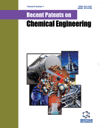Recent Patents on Chemical Engineering - Volume 6, Issue 3, 2013
Volume 6, Issue 3, 2013
-
-
Flue Gas Desulfurization and Denitrification by Activated Coke: A Mini- Review
More LessAuthors: Jin-Chi Jiang, Xia Jiang and Zhi-Shan YangSO2 and NOx in flue gas are major air pollutants responsible for acid rain and photochemical smog. The removal of SO2 and NOx by activated coke is a technology with some advantages, such as simultaneous removing SO2, NOx and particulate, high efficiency of purification and no secondary pollution. The used activated cokes can be regenerated by heating or water washing treatment to recover their activity, and the concentrated sulfur desorbed can be recycled as elemental sulfur, sulfuric acid or liquid SO2. This paper describes the principle and process of flue gas desulfurization and denitrification by activated coke. The paper also systematically summarizes the raw materials and production processes of activated coke, regeneration of used activated coke published in patents. Finally, future research directions are suggested.
-
-
-
Metal Sulfides/Graphene Nanocomposites: An Overview of Preparation and Applications
More LessAuthors: Xiaoshuang Zheng, Jingdong Liu, Long Chen, Jianping Gao and Yousheng TaoMetal sulfides/graphene nanocomposites are of interest because of their potential applications in electrochemical and photoelectrochemical energy conversion and storage. Such materials can be prepared with in situ growth strategy, hydrothermal or solvothermal method, sol-gel method, microwave assisted irradiation method and chemical vapor deposition. This article briefly summarized recent literature and patents on the synthesis of metal sulfides/graphene nanocomposites and their promising applications in energy conversion and storage such as rechargeable lithium batteries, supercapacitors and solar cells.
-
-
-
Recent Progress on Critical Cleaning of Sapphire Single-Crystal Substrates: A Mini-Review
More LessSapphire single-crystals are one of the industrial favorite substrates for GaN film deposition and LED application as well as a model system for oxides’ aqueous interfacial chemistry studies. Contamination control of sapphire substrates is critical to the device fabrication and experimental studies of interfacial properties. Here we reviewed various methods reported in the literature including conventional and new wet-chemical methods, and UV/plasma methods. Special attentions were paid to their cleaning performance in terms of reliably removing organic/particulate/heavy metallic contaminants.
-
-
-
Current Patents on Dye Wastewater Treatment
More LessAuthors: Li Yu, Mei Han, Fang He and Yihui ChenThe textile dyeing industry produced large volumes of wastewater every year and wastewater contains many toxic pollutants. These pollutants are difficult to deal with. Therefore, effective treatment methods and technology to dye wastewater are an important guarantee of eliminating bottlenecks in printing and dyeing industry, improving the ecological environment and safeguarding human health. In this article, the relevant developments reported recently in the open literatures, especially in the patents, were focused on the advances on treatment of dying wastewater. Furthermore, suggestions for future research are also put forward.
-
-
-
Design and Fabrication of Conformal Cooling Channels with Vacuum Diffusion Bonding
More LessAuthors: Jinchang Huang, Yanjin Lu, Qianting Wang and Frank LinThe cooling system is the most critical for injection mold to affecting in productivity and quality of plastic production. Traditional cooling channel is based on the conventional machining processes. It will cause long cooling time and poor cooling quality because of non-uniform cooling. This paper designed three kinds of cooling layouts for an outer housing plastic part. Simulation analysis was carried out to find the cooling effect of three kinds of cooling layouts. Considering both simulation results and mold manufacturing costs, the second cooling layouts which hybridize traditional with conformal cooling channels was fabricated by vacuum diffusion bonding. Then, outer housing plastic part was produced through injection molding. A method called cooling layouts parting method was proposed. Based on cooling layout parting method and vacuum diffusion bonding, CCC with freeform sharp can be fabricated at relatively low cost which would promote the application of plastic injection mold with CCC.
-
-
-
Recent Research and Developments in Biodiesel Production from Renewable Bioresources
More LessAuthors: Mohamed Chaker Ncibi and Mika SillanpaaResearch and development (R&D) in the field of biofuels in general and biodiesel in particular are not new endeavours. However, they gained momentum in the last couple of decades due to the increasing economic concerns and environmental awareness about the use of petroleum-derived fossil fuels. In this review article, recent patents and research and studies dealing with the production of biodiesel from bioresources will be investigated and discussed. The main objective is to present the latest research undertakings, findings and innovations in the scientific and industrial communities on biodiesel production for various bioresources and wastes.
-
Most Read This Month


